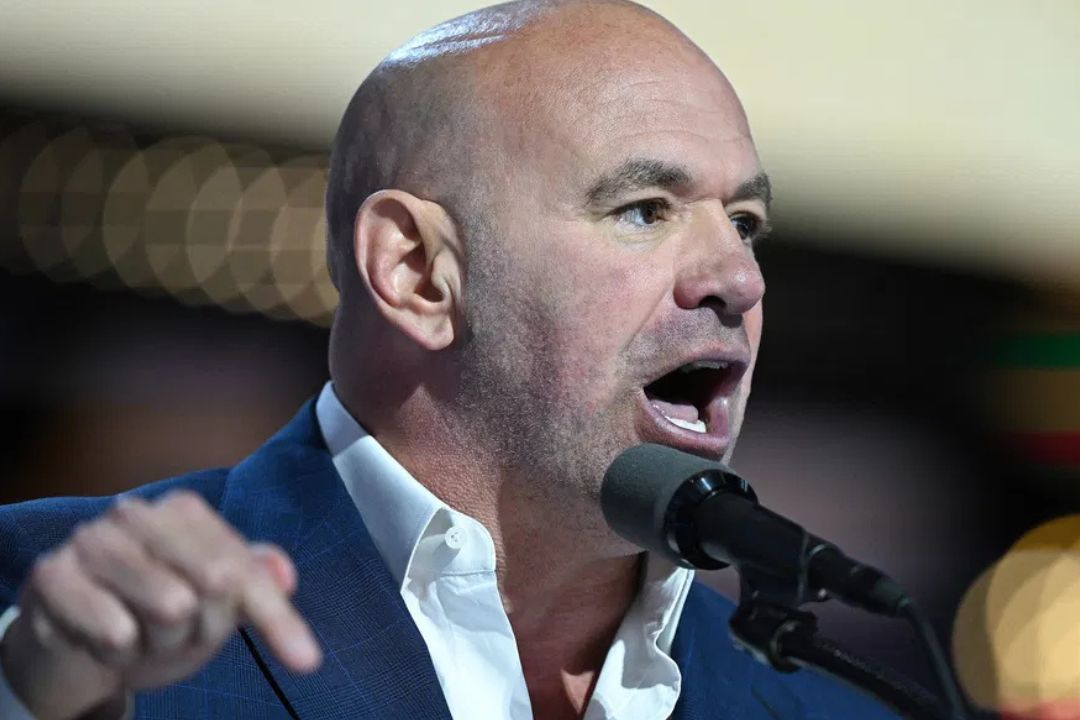
Imago
Credits: IMAGO

Imago
Credits: IMAGO
Dana White‘s confirmation that UFC Fight Night 257 in Shanghai would air during Chinese prime time rather than U.S. prime time really shook the MMA community. On the surface, it appeared to be a small scheduling change, but it actually conveyed a big message: the UFC is willing to tilt its priorities toward China, even if it causes inconvenience for its American fans.
Watch What’s Trending Now!
For years, the U.S. audience has been the unquestioned focus of UFC programming. Even overseas cards were frequently shuffled to accommodate the American pay-per-view market. But Shanghai marks a break from the tradition, suggesting that the promotion no longer regards China as merely another foreign destination. Instead, the country is becoming a central pillar of the Dana White-led promotion’s future. But why? Well, here are two key reasons behind this power move!
ADVERTISEMENT
China’s MMA market may outpower the U.S. fanbase
The decision to stick with China’s local time zone is more than just appeasing the Shanghai crowd; it’s about recognizing where growth is happening. The UFC’s last major event in Shanghai, in 2017, drew over 15,000 attendees to the Mercedes-Benz Arena and received 2 million streams on PPTV and Fight Pass, setting an Asian broadcast record at the time. The event’s hashtag on Weibo surpassed 46 million reads, far exceeding mainstream boxing chatter.
ADVERTISEMENT
These are numbers that the UFC cannot ignore. Even more striking is the demographic breakdown. Two-thirds of the UFC’s Chinese fanbase is between the ages of 18 and 34, which is exactly the age range that advertisers target and sports leagues build empires on. They are digitally active, spend consistently, and set trends across streaming platforms.
Talking about the amazing Chinese market, Dana White said during the UFC Nashville post-fight press conference in July 2025, “Do you guys know about the China card? Did we say anything publicly? The China card sold out in one minute. Under a minute. Less than a minute. The China card sold out, so yeah, we are doing some fun s—.”
ADVERTISEMENT
By focusing on that audience, the UFC is not just betting on ticket sales; it is building the groundwork for a long-term revenue stream that could even eventually outperform what the United States generates. This approach also challenges the conventional narrative. In places like London or Abu Dhabi, UFC cards are often adjusted to suit the American market.
View this post on Instagram
ADVERTISEMENT
The UFC boss’s decision to prioritize China instead indicates a willingness to allow US fans to adjust. It’s a subtle but significant indication that the biggest MMA promotion in the world feels China is more than just a secondary market; it has the potential to shape the global fight calendar.
The rise of contenders and top stars in the Dana White-led promotion
ADVERTISEMENT
Of course, markets alone don’t make a sport thrive; fighters do. And China now boasts a lineup worthy of attention. Zhang Weili is still a two-time strawweight champion and one of the most dominant figures in women’s MMA. Her accomplishments have opened the door, but she is no longer the only one holding the flag. Rising stars are entering the scene, and the timing aligns perfectly with UFC Shanghai.
Zhang Mingyang, now ranked #14 at light heavyweight in mid-2025, will face Johnny Walker. It’s a matchup with both local and global implications, showing that Chinese fighters are more than just competitors; they’re also headlining and defining divisional narratives. Along with him, Song Yadong has carved out a spot in the bantamweight elite by consistently outperforming top-tier opponents.
ADVERTISEMENT
Their presence lends credibility to the UFC’s China-first strategy; this is not a gamble on potential, but rather on proven contenders. The UFC’s Road to UFC program has further fueled this trend. By establishing a structured pipeline for Asian fighters to enter the Octagon, the promotion ensures that Weili, Yadong, and Mingyang are only the tip of a larger talent wave.

Imago
NEW YORK CITY, NY – NOVEMBER 12: Weili Zhang in her Women Strawweight title fight during the UFC 281 event at Madison Square Garden on November 12, 2022 in New York City, New York, United States. Photo by Louis Grasse/PxImages Louis Grasse / SPP PUBLICATIONxNOTxINxBRAxMEX Copyright: xLouisxGrassex/xSPPx spp-en-LoGr-lrg2211121096395_UFC281_MAIN
Unlike the isolated prospects of the past, this is a generation arriving with depth, support, and fan backing. Every year, new fighters join the program, strengthening both divisions and regional interests. Dana White sees it all as a clear image. The fans are younger and more involved, the events are gaining tremendous attention, and the fighters are climbing higher than ever before.
ADVERTISEMENT
By scheduling UFC Shanghai on China’s time rather than America’s, he suggests that the promotion’s center of gravity is shifting. The United States market remains strong, but China is no longer a frontier; it is becoming the future. So, what do you think? Is it the right move being taken by the UFC head honcho and the biggest MMA promotion in the world? Or will it all backfire in the end? Let us know in the comments.
ADVERTISEMENT
ADVERTISEMENT
ADVERTISEMENT